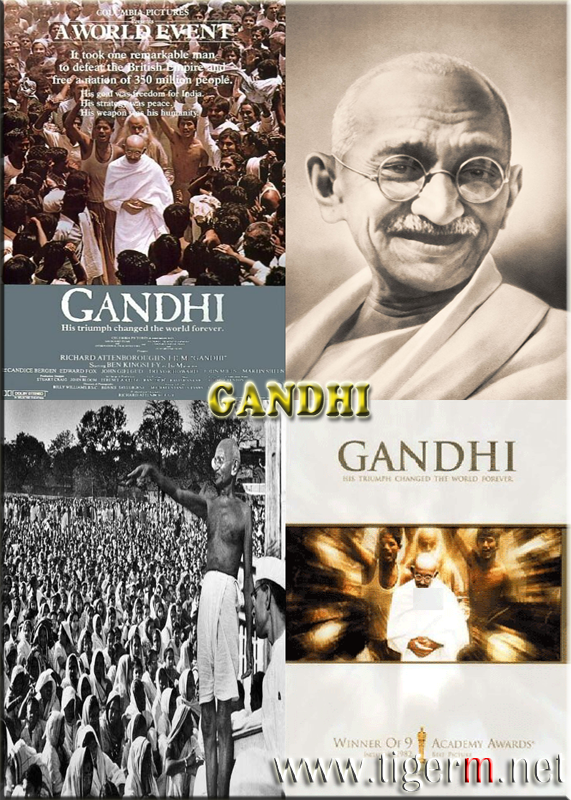"When I despair, I remember that all through history the way of truth and love has always won. There have been tyrants, and murderers, and for a time they can seem invincible, but in the end they always fall.
Think of it.
Always."
The film opens with a statement from the filmmakers explaining their approach to the problem of filming Gandhi's complex life story:
| "No man's life can be encompassed in one telling. There is no way to give each year its allotted weight, to include each event, each person who helped to shape a lifetime. What can be done is to be faithful in spirit to the record and to try to find one's way to the heart of the man...." |
Gandhi (film) - Wikipedia, the free encyclopedia: Gandhi is a 1982 epic biographical film which dramatizes the life of Mohandas Karamchand Gandhi, an Indian lawyer and activist who was a leader of the nation's non-violent, non-cooperative independence movement against Great Britain's rule of the country during the 20th century.
Gandhi was a collaboration of British and Indian production companies and was written by John Briley and produced and directed by Sir Richard Attenborough. It stars Ben Kingsley in the titular role.
The film dramatizes Mahatma Gandhi's life from a defining moment in 1893 in South Africa in which he was physically thrown off a train for being "coloured" in a whites only first class compartment until his assassination on January 30, 1948. His massive funeral is also dramatized. Although a practicing Hindu, Gandhi's embracing of other faiths, particularly Christianity and Islam, is also depicted.
Gandhi was released in India on November 30, 1982, in the United Kingdom on December 3, 1982, and in the United States on December 6, 1982. It was nominated for Academy Awards in eleven categories, winning eight, including best picture. Ben Kingsley also won for best actor.
***
Evoked potential
An evoked potential or evoked response is an electrical potential recorded from the nervous system of a human or other animal following presentation of a stimulus, as distinct from spontaneous potentials as detected by electroencephalography (EEG), electromyography (EMG), or other electrophysiological recording method.
Evoked potential amplitudes tend to be low, ranging from less than a microvolt to several microvolts, compared to tens of microvolts for EEG, millivolts for EMG, and often close to a volt for ECG. To resolve these low-amplitude potentials against the background of ongoing EEG, ECG, EMG, and other biological signals and ambient noise, signal averaging is usually required. The signal is time-locked to the stimulus and most of the noise occurs randomly, allowing the noise to be averaged out with averaging of repeated responses.
***
The twelve deciples
of
Jesus of Nazareth
behaved
very similar to the signal averaging of evoked potentials.




No comments:
Post a Comment